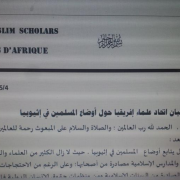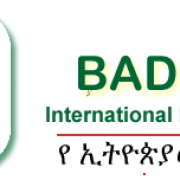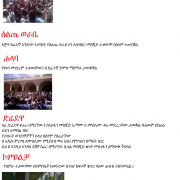Skype Banned In Ethiopia, Punishable By 15 Years In Prison
A new law passed in Ethiopia has banned Voice Over Internet Protocol services such as Skype, Al Jazeera reports.
Use of such services is punishable by large fines and up to 15 years in
prison. The law was passed with little fanfare on May 24 but has only
just become noticed by international media.
The government-owned Ethio Telecom has a monopoly on telecommunications but the country is filled with cybercafes where people can make low-cost phone calls over the Internet. Ethiopians complain that Ethio Telecom's international calling rates are unaffordable and Internet calls are their only option. This move blocks such competition.
Another probable reason for the move is to quash internal dissent. Several ethnic groups such as the Oromo and Somalis have armed independence groups inside Ethiopia. These groups get support from abroad and so the government may be trying to cut their lines of communication and funding.
Use of the Tor Project online anonymity provider has also been banned.
Having spent several months in Ethiopia in 2010 and 2011, and being in regular contact with people in the country since, I can attest to the difficulty in using the Internet there. Service is slow, and sometimes gets cut off entirely when there's a skirmish with one of the rebel groups or a meeting at the African Union headquarters in Addis Ababa. These cutoffs are invariably called "equipment malfunctions."
Emails from abroad often don't make it to people in Ethiopia. Those with business licenses always seem to get their email, but private citizens often don't. Ethiopians have told me this is because of government security fears. Many people use Facebook for email because the government can't block direct messages on the site. I myself have resorted to using Facebook for most of my communication with Ethiopian friends and colleagues.
And in case you're wondering, our emails have nothing that could possibly be construed as a security risk. Emails about archaeology, historic preservation and simple hellos have gone missing. This is a shame because Ethiopia has a growing educated class that has a lot to say and is thirsty for contact and information from the outside world. Opening up the lines of communications could very well bring on an Ethiopian renaissance from which we'd all benefit.
Ethiopia's government bills itself as a bastion of democratic stability in an unstable region and as an ally in the War on Terror, but laws such as this show that the current regime is anything but democratic.
The government-owned Ethio Telecom has a monopoly on telecommunications but the country is filled with cybercafes where people can make low-cost phone calls over the Internet. Ethiopians complain that Ethio Telecom's international calling rates are unaffordable and Internet calls are their only option. This move blocks such competition.
Another probable reason for the move is to quash internal dissent. Several ethnic groups such as the Oromo and Somalis have armed independence groups inside Ethiopia. These groups get support from abroad and so the government may be trying to cut their lines of communication and funding.
Use of the Tor Project online anonymity provider has also been banned.
Having spent several months in Ethiopia in 2010 and 2011, and being in regular contact with people in the country since, I can attest to the difficulty in using the Internet there. Service is slow, and sometimes gets cut off entirely when there's a skirmish with one of the rebel groups or a meeting at the African Union headquarters in Addis Ababa. These cutoffs are invariably called "equipment malfunctions."
Emails from abroad often don't make it to people in Ethiopia. Those with business licenses always seem to get their email, but private citizens often don't. Ethiopians have told me this is because of government security fears. Many people use Facebook for email because the government can't block direct messages on the site. I myself have resorted to using Facebook for most of my communication with Ethiopian friends and colleagues.
And in case you're wondering, our emails have nothing that could possibly be construed as a security risk. Emails about archaeology, historic preservation and simple hellos have gone missing. This is a shame because Ethiopia has a growing educated class that has a lot to say and is thirsty for contact and information from the outside world. Opening up the lines of communications could very well bring on an Ethiopian renaissance from which we'd all benefit.
Ethiopia's government bills itself as a bastion of democratic stability in an unstable region and as an ally in the War on Terror, but laws such as this show that the current regime is anything but democratic.














